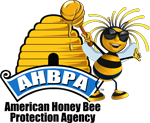By Kathie Martel Goldsmith
Children as young as the third grade understand the basic concept of pollination. They understand that pretty flowers attract insects that stop in for a snack. In the process of gathering snacks from each flower, the bees inadvertently distribute pollen to neighboring flowers….voila: the garden is colorful!
In older children studying biology or botany, they come to learn that all flowers produce fruit. If you see a flower today, you will see a fruit tomorrow.
Whoa! You mean Grandma’s irises are going to serve me up an apple pie some day?
Well no, of course not. Botanically speaking, the fruit of a flower is its matured ovary.
You know that corncob you’re going to eat at the family picnic next weekend? It’s really just a fist full of mature plant ovaries.
What about lemons? Blueberries?? Avocado???
Ovaries! Ovaries!! Ovaries!!!
Why do ovaries matter?
Ovaries are important because many flowering plants reproduce sexually. Because they are stuck in the ground it dating rituals like dinner and a movie out of the question. Therefore, they need a little help.
That’s where the pollinators come in.
Pollinators such as bees, birds, bats, and other insects act as matchmakers to plants that reproduce sexually. Pollinators visit flowers for nourishment and in the process of moving from flower to flower, pollen gets stuck on their bodies and intermingles with other flowers, which then kicks off the first step to fertilization.
The greatest and most effective of all pollinators is the honeybee. Bees visit about 2,000 blossoms a day delivering bits of pollen from one plant to the other. Obviously, this would be an impossible task to do by the human hand (but on the upside, it would help with our obesity rate).
So if those ovaries don’t get fertilized (pollinized) you can kiss that Eggplant Parmesan goodbye.
Maybe you’re thinking, “Yeah, what of it? Eggplant Parmesan baked to perfection, served with a side of lightly salted avocado slices, accompanied by a refreshing glass of lemonade sweetened with a touch of mint, and followed with a stuffed-to-the-edges blueberry cobbler really ain’t my thing.” Fair enough. But it doesn’t stop there.
Here is a list of plants that are pollinated by honeybees. Don’t miss the point here—without bees, we wouldn’t have these foods.
Consider not what you like or don’t like to consume, but rather the potential for disastrous health along with economic and cultural losses that we could suffer if we lose these foods.
Think about it, and think of the bees. We need them. They are not as beholden to us as we are to them.
For more information about the foods and plants pollinated by Honeybees, visit this link:
97 Foods Pollinated by Honeybees
| AcerolaAllspice
Almond Alsike clover Apple Apricot Arrowleaf clover Avocado Azarole Black currant, Red currant Blackberry Blueberry Boysenberry Broad bean Broccoli Brussels sprouts Buckwheat Cabbage Cantaloupe, Melon Carambola, Starfruit Caraway Cardamom Cashew Cauliflower Celery Chestnut Chilli pepper, Red pepper, Bell pepper, Green pepper Chinese cabbage Clover (not all species) Coconut Coffea spp. Coffea arabica, Coffea canephora Coriander
|
CottonCowpea, Black-eyed pea, Blackeye bean
Cranberry Crimson clover Crownvetch Cucumber Eggplant Elderberry Feijoa Fennel Flax Grape Guar bean, Goa bean Guava Hog plum Hyacinth bean Jujube Karite Kiwifruit Lemon Lima bean Kidney bean Haricot bean Adzuki bean Mungo bean String bean Green bean Lime Longan Loquat Lupine Lychee Macadamia Mango Mustard Okra Onion
|
PapayaPeach, Nectarine
Pear Persimmon Pigeon pea, Cajan pea, Congo bean Plum, Greengage, Mirabelle, Sloe Pomegranate Quince Rambutan Rapeseed Raspberry Red clover Rose hips, Dogroses Rowanberry Safflower Sainfoin Sesame Sour cherry Soybean Squash (plant), Pumpkin, Gourd, Marrow, Zuchini Strawberry Strawberry tree Sunflower Sweet Cherry Tamarind Tangelo Tangerine Tung tree Turnip, Canola Vetch Watermelon White clover
|


1 Comment
Very informative! Who knew so many of the foods we love and rely upon are dependent on the honeybee!
Comments are closed.